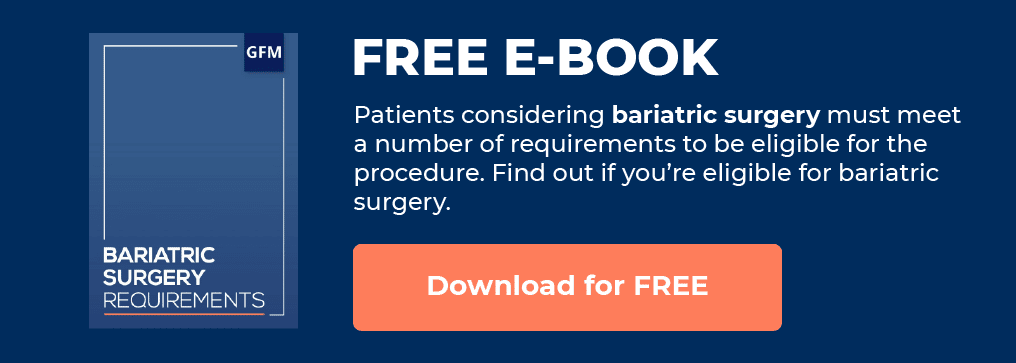Does Medicaid Cover Weight Loss Surgery
Getting Medicaid to Pay for Weight Loss Surgery
How can you get Medicaid to pay for weight loss surgery? This is becoming an increasingly common question. More and more people seek Medicaid coverage for weight loss surgeries and procedures.
The reality is obesity is a problem in the United States, and it’s known to cause issues such as diabetes, high blood pressure (HBP), and cardiovascular diseases.
This is why Medicaid has committed to cover some weight-loss surgeries, as illustrated below.
What Is Weight Loss Surgery
Weight loss surgery is a procedure that is done on people who are obese to make them lose weight. Weight loss surgery is used to make changes to your digestive system. See also types of weight loss surgery
What’s The Process of Weight Loss Surgery Approval by Medicaid
If your state Medicaid covers weight loss surgery, the first step to getting approval for surgery is scheduling a meeting with a doctor.
During the meeting, the surgeon will review the surgery’s nitty-gritty and discuss your possibilities.
Once you have decided, the surgeon can run several tests to check your medical health, and if the doctor agrees you’re okay, you can request surgery pre-approval from the state Medicaid office.
The entire procedure can take quite some time, so you must be patient.
If Medicaid approves the operation, the doctor will have to confirm your readiness to undergo surgery at the time.
This could mean checking your blood, x-rays, and other surgery preparation procedures.
Determining which part of your operation will be covered by Medicaid in your state is a bit complicated. However, you can confirm with your local state Medicaid office to see whether this information is available.
These procedures are by no means cheap, and you might be wondering if you qualify for this procedure.
Read on to learn which bariatric procedures are covered by Medicaid and the criteria used to determine whether to enroll enrollees in weight-loss surgeries.
What are Medicaid’s Criteria for Weight Loss Surgery Coverage
For Medicaid to pay for your bariatric surgery, you must meet the requirements below.
- Your BMI must typically be 40 or higher or 35 or higher, with one or more obesity-related comorbidities, regardless of your age.
- Your primary care doctor’s letter indicates that weight loss surgery is necessary.
- A pass in a psychological review.
- Proof showing that you have tried to manage comorbidities with normal treatment but with no success. Comorbidities include sleep apnea, HBP, diabetes, and high cholesterol.
- You must prove that you participated in a medically supervised weight loss program for at least six months within the two years before surgery.
- After the weight loss surgery, you must confirm that you will change your routine and diet.
What Can Disqualify You From Medicaid’s Weight Loss Surgery Coverage
- Noncompliance to previous medical treatments.
- Conditions such as pregnancy, inflammatory bowel disease, and chronic pancreatitis.
- Psychological treatment that could interfere with post-surgery routines and diet.
- Cancer.
- Long-term steroid usage.
Which Other Medicaid Considerations Are Required
For Medicaid to cover your bariatric surgery, it generally needs to be performed at a facility accredited as a Bariatric Center of Excellence or meets other defined quality standards. This certification is meant to show you which hospitals have been deemed fit for weight loss surgeries by Medicaid.
Medicaid requires that you check in to one of these facilities to ensure that you get the best possible treatment. There are various kinds of operations that you can undergo to lose weight, but Medicaid only covers the most common types.
Medicaid may cover other medically necessary bariatric procedures beyond gastric bypass, gastric sleeve, and lap band revision if deemed medically necessary, subject to approval on a case-by-case basis.
Which Weight Loss Surgeries Does Medicaid Cover
Gastric Bypass
Gastric bypass is a type of weight loss surgery during which a surgeon operates on your gut and small intestines to change how they digest and absorb food.
Gastric bypass enables weight loss by:
- Restricting the amount of food that your gut can hold
- Limiting the number of nutrients and calories absorbed by your small intestine
- Transforming your gastrointestinal hormones, which help to suppress your appetite and make you fuller for longer
Lap Band Revision
Lap band revision is a bariatric procedure that involves installing an adjustable silicone band on your stomach to create a small gut section above the band. The rest of the gut remains below the band. This limits the quantity of food or beverages you can take in one sitting.
The band is adjustable, and the procedure is reversible. Lap band revision is done laparoscopically, and it’s not as intrusive as other gut procedures.
Gastric Sleeve
Vertical gastrectomy, or gastric sleeve, is a weight loss surgery that removes about 75% of the stomach. Today, it is the most common bariatric procedure in the United States.
Medicaid coverage is not 100%; there are some things you need to pay for, such as
- Co-payments – You pay a fixed sum when you receive specific checkups. For Medicaid, this normally applies to prescription medicine.
- Deductibles – This is the yearly sum that you pay for a specific timeframe before an insurer starts to cover all your checkups and procedures
- Co-insurance – This is a chunk of the treatment cost you must pay alone.
Final Thought
Medicaid’s requirements for bariatric procedures or weight loss surgery coverage differ slightly from those of other insurance providers in the US.
This is because Medicaid is exclusive regarding who and how it covers these people. As illustrated above, many qualifications are needed for Medicaid to approve and cover your surgery.
See Also
Weight Loss Surgery Clinical Trials
